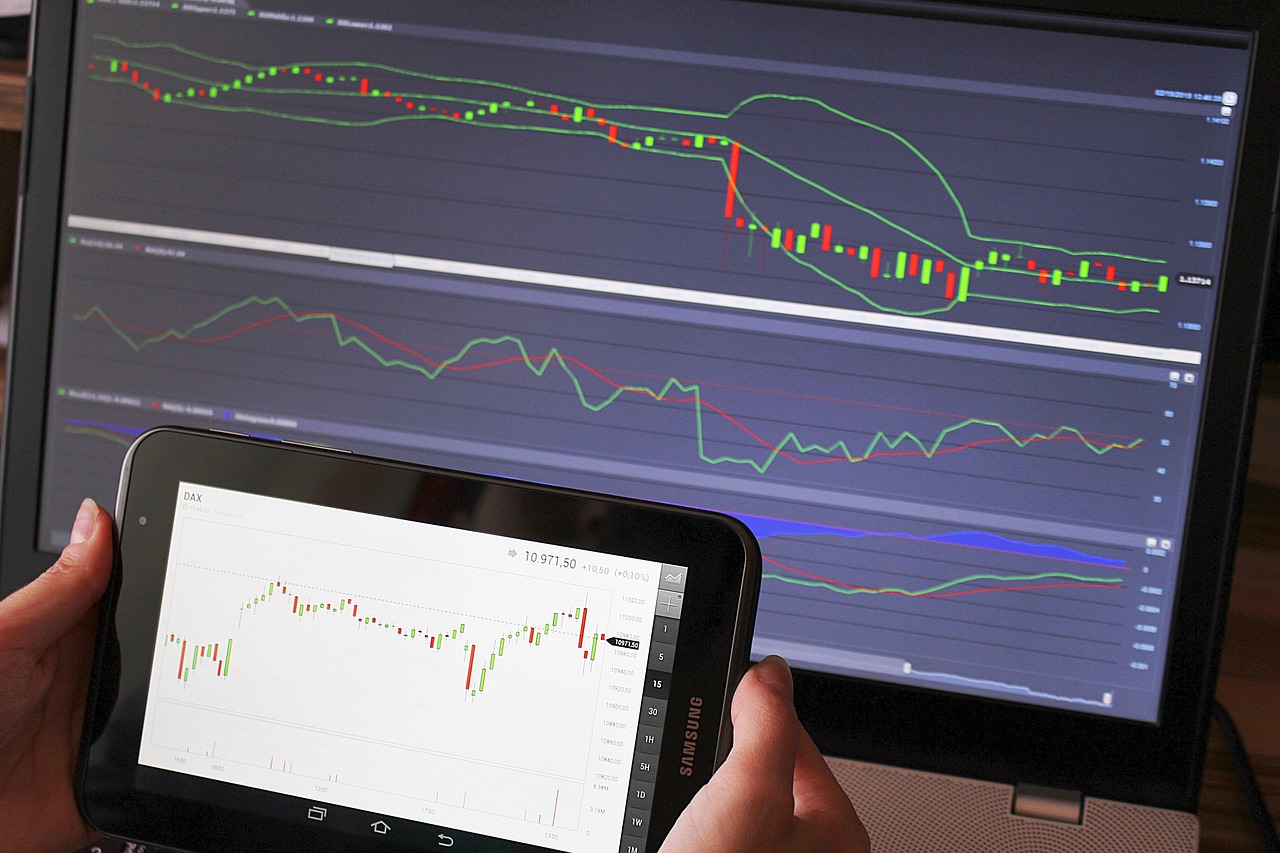Table of Contents
In the fast-paced and ever-changing world of Forex trading, one question looms large for both beginners and experienced traders alike: what percentage of people actually lose money versus making money on Forex? With the constant fluctuation of currency values, it is essential to understand the realities of this financial market. As we explore the numbers and delve into the statistics surrounding Forex trading, we gain valuable insight into the challenges and potential rewards that come with this highly volatile market. Let us examine the frequently asked question: what percentage of people lose money versus making money on Forex?

Common misconceptions about Forex trading
Forex as a get-rich-quick scheme
One of the most common misconceptions about Forex trading is that it is a get-rich-quick scheme. Many people are attracted to the Forex market with the belief that they can make massive profits in a short amount of time. However, this is far from reality. Forex trading requires time, effort, and dedication to understand the market dynamics and develop the necessary skills to be successful. It is not a way to become wealthy overnight.
The misconception of easy money
Another misconception about Forex trading is the idea of easy money. Some individuals believe that trading currencies is a simple and effortless way to make money. However, the reality is that Forex trading is highly complex and requires a deep understanding of the financial markets, economic indicators, and technical analysis. Successful Forex traders spend years honing their skills and constantly adapting to changes in the market.
Lack of understanding market dynamics
Many people jump into Forex trading without fully understanding the market dynamics. They fail to recognize that the Forex market is influenced by various factors such as economic news, political events, and global trends. Without a solid understanding of these factors and how they impact currency prices, traders are more likely to make poor decisions based on inaccurate information or emotional reactions.
Understanding the Forex market
What is Forex?
Forex, short for foreign exchange, is the global decentralized market where currencies are bought and sold. It is the largest and most liquid market in the world, with an average daily trading volume of over $5 trillion. In the Forex market, participants, including banks, financial institutions, corporations, and individual traders, engage in currency trading to speculate on the future value of one currency relative to another.
How does Forex trading work?
Forex trading involves buying one currency while simultaneously selling another. Currencies are quoted in pairs, such as EUR/USD or GBP/JPY, where the first currency is the base currency, and the second currency is the quote currency. Traders aim to profit from fluctuations in exchange rates by speculating on whether a currency will appreciate or depreciate against another. They can take long or short positions and use leverage to amplify potential profits or losses.
Factors influencing the Forex market
The Forex market is influenced by a multitude of factors. Economic indicators, such as gross domestic product (GDP), inflation rates, and interest rates, can significantly impact a country’s currency value. Political events, such as elections or geopolitical tensions, can also cause volatility in the Forex market. Additionally, global trends, such as changes in commodity prices or shifts in investor sentiment, can affect currency exchange rates.

Statistics on Forex traders’ profitability
Research studies on Forex traders’ performance
Various research studies have examined the profitability of Forex traders. These studies analyze the trading activities and outcomes of a large number of traders over a specific time period. The data collected provide valuable insights into the success rates and common pitfalls of Forex trading.
Percentage of losing traders
Statistical evidence suggests that a significant percentage of Forex traders end up losing money. According to a study conducted by DailyFX in 2014, around 30% of retail Forex traders in the United States experienced net losses. This indicates that the majority of individual Forex traders face challenges in achieving consistent profitability.
Percentage of profitable traders
While a considerable percentage of Forex traders experience losses, there is still a group of traders who achieve profitability. The same study by DailyFX found that approximately 40% of retail Forex traders in the United States were profitable. This highlights that success in Forex trading is possible but requires the development of effective strategies and proper risk management.
Breakdown of losing trades
The breakdown of losing trades among Forex traders reveals some common mistakes. Overtrading, lack of risk management, emotional decision-making, and inadequate trading strategies are often responsible for losses. It is essential to learn from these mistakes and address them to improve trading performance.
Reasons why people lose money on Forex
Lack of knowledge and skills
One of the main reasons why people lose money in Forex trading is the lack of knowledge and skills. Many individuals enter the market without a proper understanding of technical analysis, fundamental analysis, and risk management. Without these essential skills, traders are more likely to make poor trading decisions or fall victim to market manipulations.
Emotional trading and poor risk management
Emotional trading and poor risk management are significant contributors to financial losses in Forex trading. Making impulsive decisions based on fear or greed often leads to irrational trades and substantial losses. Additionally, failing to implement effective risk management strategies, such as setting stop-loss orders or position sizing, can result in significant drawdowns or blown accounts.
Overtrading and impulsive decision-making
Overtrading, or excessively trading, is a common mistake made by many Forex traders. They tend to take too many trades based on impulsive decisions rather than following a well-thought-out strategy. Overtrading can lead to increased transaction costs, decreased focus on quality trades, and an overall higher risk of losses.
Inadequate trading strategy and planning
An inadequate trading strategy and a lack of proper planning can significantly hinder a trader’s success in the Forex market. Without a clear set of rules and guidelines, traders are prone to making trades based on emotions or unreliable information. It is crucial to develop a robust trading strategy with predefined entry and exit points, as well as risk management techniques, to maximize the chances of profitability.

Important considerations for successful Forex trading
Education and continuous learning
To become a successful Forex trader, it is essential to invest in education and continuous learning. Traders should acquire a solid understanding of technical analysis, fundamental analysis, and trading psychology. They should also stay updated with market news, economic indicators, and industry trends. Continuous education helps traders adapt to changes in the market and refine their trading strategies.
Discipline and emotional control
Discipline and emotional control are crucial for successful Forex trading. Traders must adhere to their trading plan and strategy, even in the face of market volatility or tempting opportunities. Emotions such as fear and greed can cloud judgment and lead to poor decision-making. By practicing discipline and maintaining emotional control, traders can minimize the impact of psychological biases on their trading performance.
Risk management and position sizing
Effective risk management is vital in Forex trading to protect capital and minimize losses. Traders should determine their risk tolerance and set appropriate stop-loss levels for each trade. Position sizing, or determining the lot size based on risk levels, can help manage exposure to potential losses. By implementing risk management techniques, traders can preserve their capital and enhance their long-term profitability.
Adopting a proven trading strategy
Adopting a proven trading strategy is essential for consistent profitability in Forex trading. Traders can choose from a variety of strategies, such as trend following, range trading, or breakout trading. The key is to select a strategy that aligns with individual trading styles and preferences. Backtesting and forward-testing the strategy in a demo account can help verify its effectiveness before risking real money.
Learning from successful Forex traders
Forex trader case studies
Studying successful Forex traders can provide valuable insights and lessons for aspiring traders. Analyzing their trading approaches, risk management techniques, and decision-making processes can help identify common traits and strategies that contribute to their success. Case studies of renowned Forex traders, such as George Soros or Paul Tudor Jones, can inspire and guide traders in their own journey.
Keys to their success
Successful Forex traders often share common keys to their success. These include discipline, patience, adaptability, and continuous learning. They emphasize the importance of sticking to their trading plan, managing risks effectively, and avoiding emotional decision-making. Additionally, they understand the significance of adapting to changing market conditions and constantly improving their trading skills.
Lessons to be learned
By studying successful Forex traders, aspiring traders can learn valuable lessons. They can understand the importance of developing a solid trading plan, implementing effective risk management strategies, and staying disciplined in the face of market fluctuations. Learning from successful traders’ mistakes and successes can accelerate the learning curve and increase the chances of profitability.

Benefits and risks of Forex trading
Leverage and potential for high returns
Forex trading offers the advantage of leverage, which allows traders to control larger positions with a smaller amount of capital. This leverage magnifies both profits and losses, offering the potential for high returns. However, traders must be cautious with leverage as it increases risk and can lead to substantial losses if not used properly.
24/5 market access and liquidity
The Forex market operates 24 hours a day, five days a week, providing traders with continuous market access. This flexibility allows traders to participate in the market at their preferred times, regardless of their geographical location. Additionally, the Forex market is highly liquid, meaning traders can enter or exit positions quickly and with minimal slippage.
Volatility and unpredictability
While volatility in the Forex market can present trading opportunities, it also poses risks. Currency prices can fluctuate rapidly due to economic news, political events, or market sentiment. This volatility can result in unexpected losses if traders fail to manage risks effectively. It is important for traders to be prepared for sudden price movements and avoid overexposure to volatile currency pairs.
Brokerage and transaction costs
Forex trading involves transaction costs, such as spreads, commissions, and rollover fees, charged by brokers. These costs can vary significantly among brokers, and traders should consider them when choosing a brokerage. High transaction costs can eat into profits, especially for traders who frequently enter and exit positions. It is advisable to compare brokerage fees and choose a reputable broker with competitive pricing.
Steps to improve Forex trading profitability
Assessing personal weaknesses and areas for improvement
To improve Forex trading profitability, it is crucial to assess personal weaknesses and areas for improvement. Traders should identify their psychological biases, trading mistakes, and knowledge gaps. By acknowledging these weaknesses, traders can focus on developing skills, implementing effective strategies, and addressing any emotional or psychological barriers that hinder their success.
Implementing a structured trading plan
A structured trading plan is an essential tool for improving Forex trading profitability. It outlines specific entry and exit criteria, risk management guidelines, and trade management rules. Traders should create a plan that aligns with their trading goals, risk tolerance, and preferred trading style. Following a well-defined plan can help eliminate impulsive trades and increase consistency in decision-making.
Developing a consistent trading routine
Consistency is key in Forex trading. Traders should develop a consistent trading routine that incorporates analysis, trade execution, and review. This routine helps establish discipline and reduces the chances of emotional decision-making. By following a structured routine, traders can maintain focus, identify patterns, and evaluate the effectiveness of their trading strategies.
Using risk-reward ratios and stop-loss orders
To improve profitability, traders should implement risk-reward ratios and utilize stop-loss orders. Risk-reward ratios help determine the potential return on investment relative to the acceptable level of risk. By setting favorable risk-reward ratios, traders can ensure that potential profits outweigh potential losses. Stop-loss orders act as a safety net by automatically closing positions when prices move against expectations, limiting losses.

Seeking professional guidance in Forex trading
Mentorship and coaching programs
Seeking mentorship or enrolling in coaching programs can provide valuable guidance and accelerate learning in Forex trading. Experienced mentors can offer personalized insights, share their trading strategies, and provide feedback on areas for improvement. Mentorship programs often include educational materials, real-time trade analysis, and ongoing support to help traders develop the necessary skills for success.
Forex signal services
Forex signal services offer trade recommendations and analysis to subscribers. These services provide real-time information about potential trading opportunities, including entry and exit points. Traders can choose to follow these signals, which are generated by experienced traders or algorithms. However, it is important for traders to conduct their own analysis and due diligence before executing any trades based on signals.
Managed Forex accounts
Managed Forex accounts are investment vehicles where professional traders manage the trading activities and make investment decisions on behalf of investors. These accounts are suitable for individuals who prefer a hands-off approach to trading or lack the time and expertise to trade independently. However, it is crucial to carefully research and select reputable and transparent managed account providers.
Differentiating between genuine experts and scams
When seeking professional guidance in Forex trading, it is important to differentiate between genuine experts and scams. Unfortunately, the Forex industry is not immune to fraudulent practices. Traders should thoroughly research mentors, signal services, or managed account providers before investing their time or money. Evaluating track records, reading user reviews, and seeking recommendations from trusted sources can help identify legitimate professionals.
Conclusion
Forex trading is a challenging yet potentially rewarding endeavor. Understanding common misconceptions, the dynamics of the Forex market, and the experiences of successful traders are crucial for achieving profitability. By continuously learning, developing effective strategies, and managing risks, individuals can increase their chances of success in Forex trading. Seeking professional guidance can also provide additional support and guidance on the path to profitability. Remember, discipline, patience, and continuous improvement are key to becoming a successful Forex trader.



